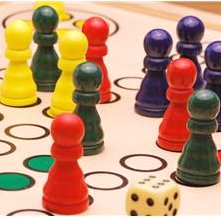 Money management games help people learn better ways to spend and save. Popular money management games include the Stock Market Game and a variety of offerings developed by Cooperative Extension (such as the Allowance Game). Yet, personal finance is often taught not with interactive games and relevant scenarios. Instead, many classes and seminars that teach teens and adults how to manage money are quite dry. They are often lectures, PowerPoint presentations, or worksheet-driven classes.
Money management games help people learn better ways to spend and save. Popular money management games include the Stock Market Game and a variety of offerings developed by Cooperative Extension (such as the Allowance Game). Yet, personal finance is often taught not with interactive games and relevant scenarios. Instead, many classes and seminars that teach teens and adults how to manage money are quite dry. They are often lectures, PowerPoint presentations, or worksheet-driven classes.
buy quality full drill 5d diamond painting diy cross stitch embroidery for home.
That’s not to say that teaching money management cannot have some component of lecture, PowerPoint, or worksheet. However, relying solely on these teaching methods often leads to classes where students don’t seem invested or interested and don’t seem to make important connections between what happens in the classroom and what happens in real life. Also, while reading PowerPoint slides to a class may be easy, it usually does not make for a good teaching or learning experience in the way that learning games do.
It’s for these reasons, that students and teachers have enjoyed using Money Habitudes as part of money management and personal finance classes. Like other personal finance games, Money Habitudes offers a few advantages:
One of the fun testimonials we hear all the time is that people who use Money Habitudes often want to do the personal finance game with their friends and family after taking a class. That’s a very different reaction compared to most personal finance classes where few people ever run home to make a budget. However, because Money Habitudes serve to break the ice when it comes to thinking and talking about personal finances, they often serve as a gateway to other money management steps: doing a budget, getting one’s credit report, seeing a financial planner, etc. Money management games should be fun enough that people want to use them — and share them.
Use Money Habitudes as an introductory lesson to other skills-based lessons or personal finance curricula (such as Money Smart). Beyond using only the cards in your classroom, check out the Dibble Institute’s Money Habitudes: How To Be Rich in Life & Love, a curriculum about money and relationships. The instructional game-based program targets high school teens and is also applicable in after-school programs, foster care programs, and faith-based money and relationship classes for teens.